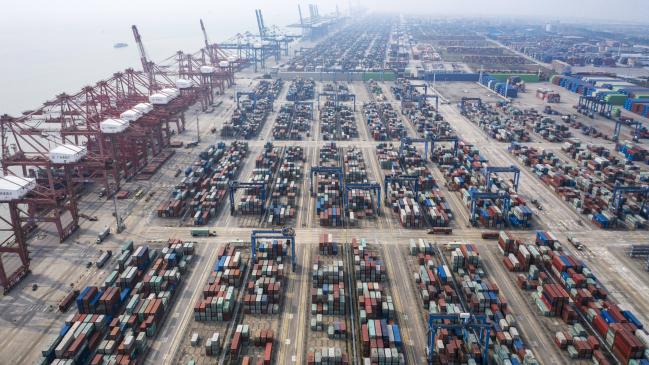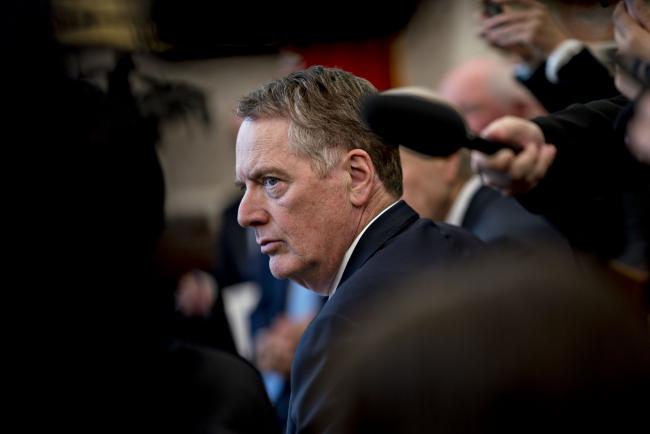(Bloomberg) -- China’s top trade negotiator, Vice Premier Liu He, will visit the U.S. for trade talks in what’s shaping as a crucial week for the yearlong standoff after President Donald Trump ratcheted up pressure with plans to raise tariffs on Chinese goods Friday.
Liu will travel to the U.S. for trade talks May 9-10 at the invitation of U.S. Trade Representative Robert Lighthizer and Treasury Secretary Steven Mnuchin, according to a statement on the Chinese Ministry of Commerce website. On Monday, Chinese authorities were said to be considering a delay to the trip by their top negotiators, according to people familiar with the plans.
The state of the trade talks were cast into doubt after Trump’s surprise announcement over Twitter on Sunday that he planned to raise tariffs on $200 billion of Chinese goods to 25 percent from 10 percent because talks were moving too slowly. The president said he may also impose duties “shortly” on $325 billion of Chinese goods that aren’t currently covered, a move that would hit virtually all imports from the Asian nation.
The Trump administration plans to increase duties on Chinese imports at 12:01 a.m. on May 10, Lighthizer said Monday. “We felt we were on track to get somewhere. Over the course of last week we have seen an erosion of commitments by China. That in our view is unacceptable,” he said, adding that significant issues remain unresolved, including whether tariffs will remain in place.
China was “well prepared for other potential outcomes” of its trade talks with the U.S., “including a temporary breakdown in talks,” the Global Times newspaper said in an editorial Tuesday. The door wasn’t closed to talks even if the U.S. raises tariffs, the newspaper said.
Lighthizer and Mnuchin told reporters on Monday that the Chinese backsliding became apparent during their visit to Beijing last week, but that they had been reassured by their Chinese interlocutors that everything would turn out.
That changed over the weekend when China sent through a new draft of an agreement that included them pulling back on language in the text on a number of issues, which had the “potential to change the deal very dramatically,” Mnuchin said. At that stage about 90 percent of the pact had been finalized, he said, and the Chinese wanted to reopen areas that had already been negotiated.
“We are not willing to go back on documents that have been negotiated in the past,” he said.

